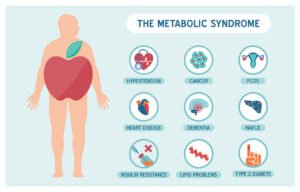The Keto Diet for a Stronger Immune System
The keto diet for a stronger immune system has gained significant attention in recent years. Many people are exploring this low-carb, high-fat diet not just for weight loss but also for its potential health benefits. One of the most compelling advantages is its positive impact on overall health and defense mechanisms.
By drastically reducing carbohydrate intake and replacing it with fats, the keto diet induces a state of ketosis. This metabolic state produces ketone bodies, which serve as an alternative energy source.
Recent studies, including one published in Clinical Nutrition, highlight how these changes can enhance the body’s defenses and reduce inflammation, making the keto diet an attractive option for those looking to boost their health.
Understanding the Keto Diet
The ketogenic, or keto, diet is a low-carbohydrate, high-fat eating plan designed to shift the body’s metabolism. Unlike traditional diets that rely on carbohydrates as the primary energy source, the keto diet focuses on fats.
By drastically reducing carb intake to less than 10% of daily calories and increasing fats to about 60-70%, the body enters a state called ketosis. In ketosis, the liver converts fats into ketone bodies, which then become the main energy source for the body.
Mechanism of the Keto Diet
When carb intake is minimized, glucose levels drop, and the body needs an alternative fuel. The liver starts breaking down fats into ketone bodies, including beta-hydroxybutyrate (BHB), acetoacetate, and acetone. These ketones replace glucose as the primary energy source, powering muscles, the brain, and other tissues.

This metabolic switch not only promotes fat loss but also brings about various health benefits. One of the most significant advantages is the reduction in insulin levels. Lower insulin helps decrease fat storage and enhances fat burning.
Additionally, ketone bodies have anti-inflammatory properties, which can help mitigate chronic inflammation often linked to many modern diseases. By understanding how the keto diet works, it’s easier to see how it supports overall health and improve the body’s defenses.
What Exactly is the Immune System?
The immune system is a complex network of cells, tissues, and organs working together to defend the body against harmful invaders such as bacteria, viruses, and other pathogens. It consists of two main parts: the innate immune system and the adaptive immune system.
The innate immune system provides the first line of defense and responds quickly to pathogens. It includes physical barriers like the skin and mucous membranes, as well as immune cells such as macrophages and neutrophils. These components act swiftly to prevent the spread of invaders.
The adaptive immune system, on the other hand, responds more slowly but with greater specificity. It involves lymphocytes, such as B cells and T cells, which recognize and remember specific pathogens. This memory allows for a quicker and stronger response upon subsequent exposures to the same pathogen.
Importance of a Healthy Immune System
A healthy immune system is crucial for maintaining overall health and well-being. It protects the body from infections and diseases and helps in the recovery process when illness occurs. An efficient immune response not only fights off pathogens but also reduces the severity of illnesses and speeds up recovery.

Maintaining a robust immune system requires a balanced diet, regular exercise, adequate sleep, and stress management. Nutritional interventions, such as the keto diet for a stronger immune system, can play a significant role in enhancing immune function. By providing the body with the right nutrients and promoting metabolic health, the keto diet helps support and strengthen the body’s natural defenses.
A compromised immune system can lead to increased susceptibility to infections, prolonged illness, and a higher risk of chronic diseases. Therefore, understanding how different dietary choices, like the keto diet, impact immune health is essential for making informed decisions about one’s diet and lifestyle.
Practical Implications and Benefits of the Keto Diet for a Stronger Immune System
The keto diet’s impact on the immune system has practical implications that extend beyond the scientific findings. By reducing inflammation and improving metabolic health, the diet can help people maintain better overall health. This is particularly beneficial for individuals with conditions such as obesity, diabetes, and metabolic syndrome, as these conditions are often associated with chronic inflammation and impaired immune function.

One of the most compelling aspects of the keto diet is its potential to provide sustainable health benefits. Unlike many diets that require strict calorie counting or extreme restrictions, the keto diet focuses on a natural shift in metabolism. This can make it easier for individuals to adhere to the diet long-term, leading to more consistent health improvements.
Recovery and Disease Prevention
For those prone to frequent infections or those with weakened immune systems, the keto diet can offer a natural way to boost their body’s defenses. By enhancing T-cell function and reducing inflammation, the diet helps the body respond more effectively to pathogens. This can result in fewer illnesses and quicker recovery times.
In addition, the anti-inflammatory properties of the keto diet can help prevent the onset of chronic diseases. Conditions like heart disease, certain cancers, and autoimmune disorders often stem from long-term inflammation. By maintaining a low-inflammatory state through diet, individuals can potentially reduce their risk of developing these serious health issues.
By enhancing T-cell function and reducing inflammation, the diet helps the body respond more effectively to pathogens.
This can result in fewer illnesses and quicker recovery times.
Implementing the Keto Diet
Starting a keto diet involves making significant changes to one’s eating habits. It’s important to plan meals that are high in healthy fats, moderate in protein, and very low in carbohydrates. Foods such as avocados, nuts, flax seeds, olive oil, fatty fish, and low-carb vegetables are staples of the diet.

Transitioning to ketosis can take several days to a week, and some people might experience what is known as the “keto flu,” which includes symptoms like headache, fatigue, and irritability. These symptoms are temporary and can be managed by staying hydrated, ensuring adequate salt intake, and gradually reducing carbohydrate intake.
Helpful Reading:
Broader Health Implications
The broader implications of the keto diet extend beyond immune support. Research suggests that the diet can improve mental clarity, increase energy levels, and support weight loss. By stabilizing blood sugar levels and reducing insulin spikes, the keto diet can also help manage conditions like type 2 diabetes.
In summary, the keto diet offers a holistic approach to enhancing health. Its ability to reduce inflammation, improve metabolic health, and boost immune function makes it a valuable dietary strategy for those looking to improve their overall well-being. Adopting this diet can lead to both immediate and long-term health benefits, making it a practical choice for enhancing the body’s natural defenses.

Key Takeaways
- Reduced Inflammation: The keto diet significantly lowers inflammation by reducing insulin levels and inflammatory markers, which helps the immune system function more efficiently.
- Improved Metabolic Health: Inducing ketosis enhances insulin sensitivity, reduces triglycerides, and increases beneficial fatty acids, all of which support a healthier immune response.
- Enhanced T-cell Function: The keto diet boosts T-cell production and function, improving the body’s ability to fight infections and diseases.
- Practical and Sustainable: With careful planning and professional guidance, the keto diet can be a sustainable and effective way to enhance overall health and immune defense.

Final Thoughts
The keto diet for a stronger immune system offers a compelling approach to improving overall health. By reducing inflammation and promoting beneficial metabolic changes, this diet supports the body’s natural defenses against infections and diseases. The study published in Clinical Nutrition highlights the significant benefits of the keto diet, showing how it can lead to better immune function and overall health improvements.
Implementing the keto diet requires a commitment to changing eating habits, but the potential health benefits make it a worthwhile endeavor. From enhanced T-cell function to reduced inflammation, the keto diet provides a holistic approach to boosting immune health.
As more research continues to uncover the benefits of this diet, it stands out as a practical and effective strategy for those looking to strengthen their immune system and improve their overall well-being.
By adopting the keto diet, individuals can enjoy both immediate and long-term health benefits, making it a valuable addition to a healthy lifestyle. Whether for preventing chronic diseases or enhancing everyday immune function, the keto diet offers a powerful tool for achieving and maintaining optimal health.
References
- A ketogenic diet substantially reshapes the human metabolome. Clinical Nutrition
- Metabolome. Science Direct
- Ketogenic diet activates protective γδ T cell responses against influenza virus infection. Science Immunology
Keto PowerFlax Baking Mix: Keto & So Much More!

- Commercial Bakeries: you can easily produce delicious flax-based keto-friendly products which are clean label, high protein, high fiber and vegan
- Works with your current equipment and baking processes
- Recipes provided on all bulk orders, with ongoing customer support
- Worldwide shipping
- Get in touch with us today!

What to Read Next:
- Healing Disease Through Diet: Why Ketosis Works
- Keto Diet for Hashimoto’s: Science-Backed Thyroid Support
- Keto Diet for Depression and Anxiety: New Study
- Food as Medicine: Expand Your Bakery’s Reach and Profits
- Keto Diet For Migraines: Prevention and Relief (New Study)


